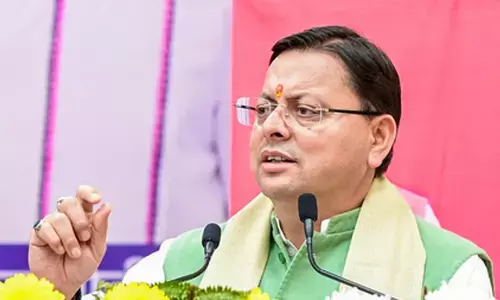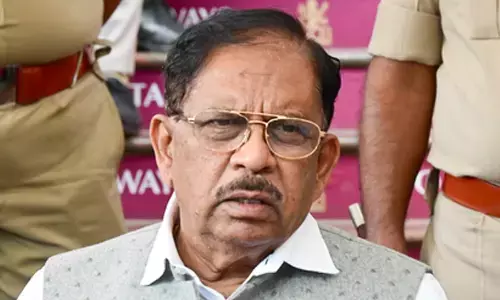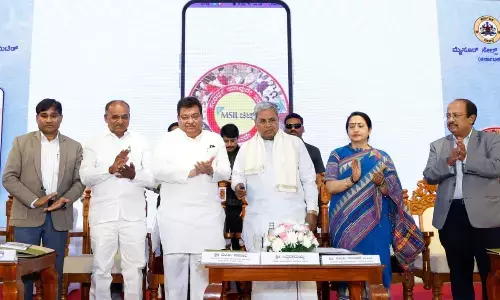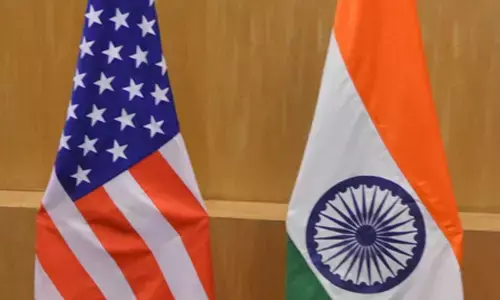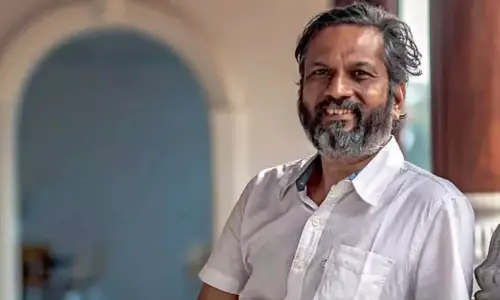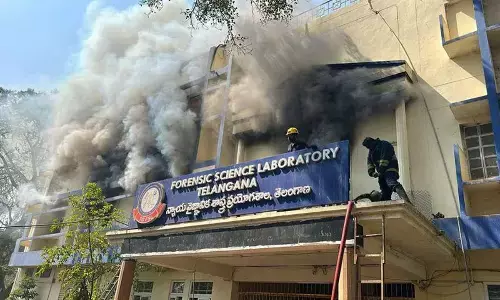Of learning, unlearning and relearning
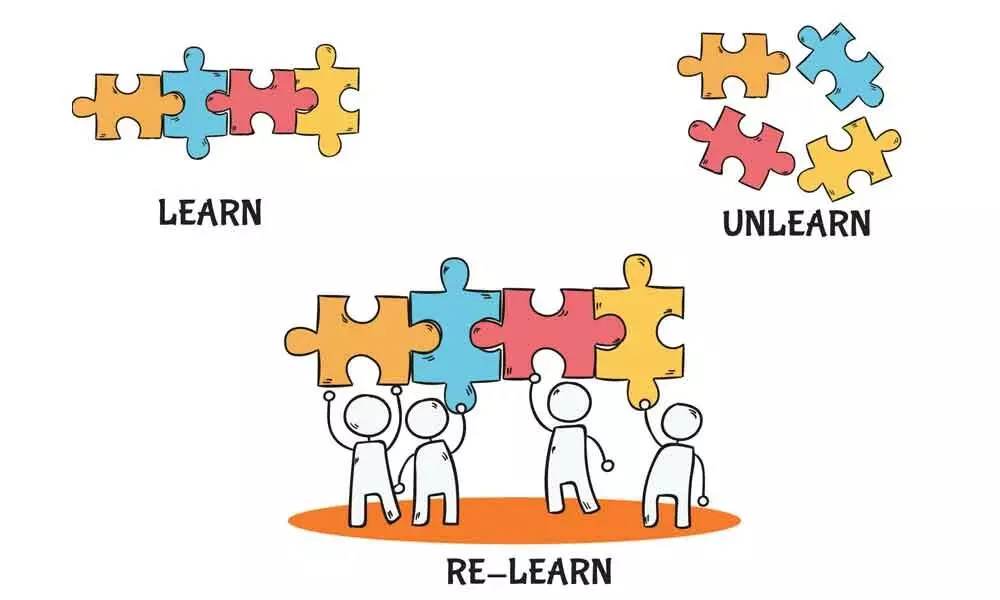
Of learning, unlearning and relearning
The need for improving the infrastructure of educational institutions in the country and the content of curricula and syllabi have been touched upon briefly in an earlier piece in this column. Let us, today, take a look at the state in which the temples of higher learning, namely the universities are.
The word university is derived from the Latin 'universitas magistrorum et scholarium' meaning 'a community of teachers and scholars'. It was first used to describe the institution established in Bologna Italy in 1088.
As a matter of fact, as long ago as 2200 years, the first university, at Athens, was holding classes, organising lectures, maintaining a library, and laying the foundation upon which the modern edifice of higher education now rests in a highly developed state.
And, difficult to believe though it may sound, a formal education system was first established, nearly two millennia ago in China. "A university stands for humanism, for tolerance, for the adventure of ideas and for the search of truth" said Jawaharlal Nehru.
Athens and Rome were home to the earliest known formal systems of education the history of mankind has seen. While the Greek system achieved prominence in the fifth century BCE its counterpart in Rome took shape in the 3rd century BCE.
It was later in the 5th century CE that Nalanda University was established (in today's Bihar state in India), and became an undisputed international centre of higher learning. In a very gratifying development a proposal to re-establish that university was endorsed by 16 countries in 2007 and, finally, a modern version of the ancient university opened its doors to the first batch of students in 2014 following an enactment of Parliament.
The University of al-Qarawiyyin established in 859 CE at Fez in Morocco is also a great ancient institution that has now developed into a modern and contemporary university.
It is said that Mark Twain once famously remarked that "I have never let my schooling interfere with my education!"
In a similar vein, a great political philosopher, in his autobiography, titled one chapter as 'going to school' and the next one 'beginning of education!' Then, we have Alvin Toffler, author of the sensational book 'Future Shock', say "The illiterate of the 21st century will not be those who cannot read and write, but those who cannot learn, unlearn and relearn".
And, living as we do in an era where digital technology has replaced traditional forms of access to information and knowledge, one finds that the entire definition of the word 'education' has undergone a dramatic transformation. One can be highly educated and still be all at sea in the world of today.
On the other hand, an illiterate farmer can with the click of a mouse obtain all the assistance he needs to carry on his occupation profitably. Societies, modern as well as ancient, have always been supported by human resource shaped by education systems.
The skills, knowledge and the wisdom needed to secure order in a Society, have been provided by educational institutions such as gurukuls in earlier times, and schools and colleges in modern days. The Indian higher education system ranks among the best such systems in the world.
In the 'Panchatantra' stories, the King invites Vishnu Sarma - an elderly scholar of great repute - to his Court and requests him to impart knowledge and wisdom to his four imbecile sons.
And, in Indian mythology, the 'Rakshasa' (demon), king Hiranyakasipu hands over his five- year- old son Prahlada to Chandamarka, son of Sukracharya - The sage who was the guru - preceptor of the Demon race, to make him (Prahlada), a scholar. Education was accorded such importance in the initial days that, Bhartruhari in his 'subhashitas' brands an illiterate a 'strange animal'.
The alumni of reputed educational institutions have shaped modern India, building dams and factories. They also included famous doctors, sociologists, political thinkers, anthropologists, lawyers and scientists.
The Corona vaccines, for example, have been made in Indian labs, although the formulae may have originated in Oxford or Washington, and are now being used in many countries. In short if there were no universities, the very existence of Society as we know it, would cease to exist.
Sadly, however, universities all over the country are suffering from criminal neglect. As noted in earlier pieces in this column, the central and state governments are, unfortunately, trying to exit from both education and health/ medicare areas where their presence is still very much needed.
The curricula and syllabi need to be 'trans' rather than 'multi' disciplinary. And universities, should really be places where admixture of disciplines produces robust hybrids and not comprise departments that live in silos. The interaction of different fields of learning and investigation should therefore be more in the nature of chemistry rather than physics.
Viewed against that background the tendency to establish universities for narrow and limited areas such as, for instance, medicine or aeronautics does not augur well for the future of the university system as it was originally conceived. On the other hand, however, the establishment of universities exclusively to cater to the needs of neglected sections such as women is a welcome step.
There are distinguished centres of excellence in the shape of renowned universities in many parts of the world, the most prominent among them being the Oxbridge twins in the UK, the Ivy League group of universities in the USA and Sorbonne in France, to mention just a few.
Not to be left without mention, in this context, are many illustrious examples in our own country, such as the University of Bombay, the University of Calcutta, Santiniketan, Annamalai University at Chennai, the Jawaharlal Nehru University and the Delhi University in the national capital and many other Universities with glorious histories and enviable international reputations, such as the Allahabad University and the Osmania University, again, to mention just a few.
In more recent times, institutions such as the IITs and IIMs have also carved out a niche for themselves in the international space of higher education. Then there is the Centurion University of Technology and Management, Bhubaneswar, recently and its sister institution in Visakhapatnam which have demonstrated the value of a refreshingly unique approach to designing the curriculum and syllabi of courses.
As a result of constant interaction with potential employers and continuous tweaking of the course content in consultation with them, the university has achieved the almost unheard-of objective of every single student, not only securing employment, but knowing precisely where he he/she will go!
(The writer is former Chief Secretary, Government of Andhra Pradesh)








